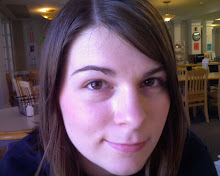Ingrid leads an awkward childhood, and develops a tic in which she compulsively picks at her face and body. She is smart, but anxious and shy, so her teachers and the other students often make fun of her. She is popular because of her beauty, but has no friends. She repeatedly describes how she has dozens of friends, and no friends--no one who wouldn't betray her in a heartbeat, that is. Ingrid soon finds herself in a situation similar to her mother's: she is a beautiful woman, and men's eyes follow her everywhere. She finds pleasure and power in this, but is ultimately disempowered completely because of her utter submission to being a sexual object, one whose sole purpose is to please and then be cast aside.
About halfway through the novel, Ingrid runs away from home. By now she's already involved with drugs and alcohol, but that pales in comparison to the latest trouble she lands herself in: she is abducted into a gang called Satan's Children, in which she is raped and tortured. Despite this, she and the other women worship Enoch Scaggs, the leader of the group, said to be Satan's own son. It soon becomes apparent that rape and torture aren't the full extent of the horrors committed by Satan's Children--they also engage in ritual human sacrifice. Eventually it is Ingrid's turn to be sacrificed, but she manages to escape. She's so emaciated that she manages to slip through the slit of an open window in the garbage dump of a basement in which she's being held captive.
Ingrid reconnects with her mother, and goes through rehab and psychiatric evaluations and therapy. She falls in love with her therapist, and tells her mother she plans on marrying him. Chloe, too, seems to be settling into a calmer life, one safe from her ex-husband. In the last chapter, Ingrid observes the results of a winter storm, and how many of the ruins aren't actually new, but have been there all along, years perhaps. The broken trees are evidently a metaphor for her own broken, but alive, state:
You wondered how they could survive but of course they did. In the skin were marks just visible through the ice-coating, like a secret writing, scars. Nor were they dead exactly, those fallen trees. They were alive, only not vertical. The heartbeat inside them had maybe slowed, only a murmur but if you squatted to listen, if you knew how to listen, if the wind would die down you would hear it.
Ingrid has her own scars, both phsyical and psychological, some more apparent than others. And although her time with Satan's Children resulted in some of the most brutal damage, it's undeniable that some scars run deeper and were inflicted much earlier in her life. Her mother, too, carries scars as well, and both women deal with their pain as best they can. They are alive, even if bent and broken.
I found a few aspects of this novel very interesting. The story is told from Ingrid's perspective, looking back on her life as though recounting these events to a therapist (perhaps the very one she speaks of marrying? It's unclear, and given her manic state, it almost seems like she may have relapsed and is not actually as well as she seems at the end of the novel). Her narration comes as a stream of consciousness, sometimes with a paragraph composed of a single sentence. Thinking back on it now, I'm beginning to think Ingrid may not be a reliable narrator. The novel begins with her entering a women's detention facility. She is on suicide watch. The doctor asks her to tell him about her life, and the story begins, although she tells the doctor that she will not tell him of her life. Is it not her life being recounted then? Perhaps all of it is merely a fabrication.
Anyway, aside from the narrative structure of the novel, it is also interesting how Oates creates a dynamic in which the main female characters (Ingrid and her mother) are located at the center of male violence. Chloe tries to use her beauty as a weapon and means of controlling men--she attracts suitors who can support her and uses them for her own benefit, giving in return, of course, her beautiful body. This power is taken from her when her husband asserts his own claim over her mind and body, beating her suitor and eventually murdering him (being sure to snap some polaroids, which he sends to Chloe just make sure she knows her place). Ingrid, too, attempts to hold some sway over men with her physical attractiveness, and flaunts her sexuality. She feels confident and strong (and perhaps tries to overcompensate for other insecurities), but one day she flirts with the wrong man, and is promptly taken home by Enoch Scaggs, who essentially makes her a sex slave to him and the other men in Satan's Children.
It becomes clear that neither Chloe nor Ingrid are able to assert their own sexual power because they are expressing their sexuality within the limited structure prescribed for them by society. They become prisoners of their own sexuality because what they are expressing is a male construction of female sexuality. While Chloe and Ingrid are both beautiful, intelligent women, in many ways independent and strong, they embody the opposite of the femme fatal trope (perhaps even parodying it). They need men because their very sense of sexuality is defined by them, but that sexuality and sense of self is also, at a basic level, what imprisons them in a cycle of abuse.
This is a compelling novel. Deeply disturbing, but compelling. I'm still not certain of how reliable Ingrid is as a narrator, but the question of reliability only adds to the intrigue of this twisted tale.

This was such a major help for me(:
ReplyDeletethanks